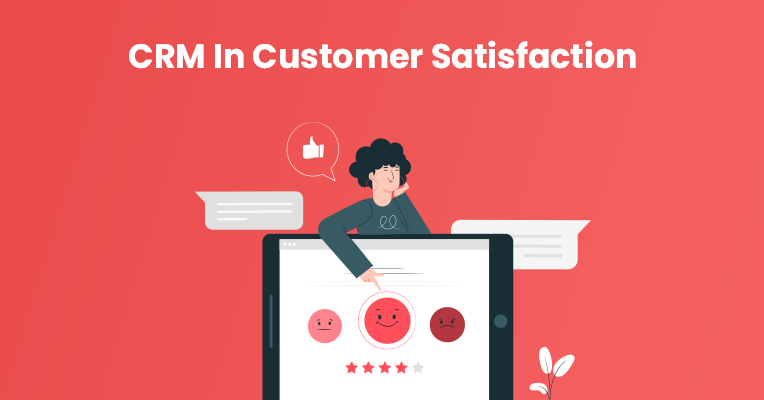In today’s dynamic landscape, customer expectations have surged across various sectors. Industries spanning FMCG, vehicles, travel, and tourism now offer customers an extensive array of options, emphasizing the significance of customer satisfaction for every organization. It has become imperative for businesses to prioritize meeting and exceeding customer expectations to thrive in this competitive environment. Join us as we explore the critical role of customer satisfaction in diverse industries and discuss effective strategies to ensure customer delight. Let’s embrace the challenge of surpassing customer expectations together!
Education CRM (Customer Relationship Management) is an essential tool for educational organisations looking to improve customer satisfaction. In this blog post, we’ll explore the factors that contribute to customer satisfaction, how CRM affects customer satisfaction, and how Meritto (formerly NoPaperForms) can help you it.
CRM in driving customer satisfaction
While interacting with brands that have a better understanding of our needs, you want to be given options that are relevant to you, and the procedure to be simple and open. This is the point at which CRM in retail and B2B becomes more significant.
Factors that contribute to Customer Satisfaction
- Student Communication: Effective communication is a key factor in customer satisfaction, and Education CRM helps educational organisations to communicate with students more effectively, by providing communication tools such as email and SMS. Sometimes customers may switch channels during the conversation. They can send an email initially and then continue over a phone call or WhatsApp. Having omnichannel communication and a context of communication is crucial.
- Marketing Automation: CRM can automate tasks such as scheduling appointments, tracking student enquiries, or providing support through chatbots or virtual assistants, which can make the process more convenient for students.
- Personalisation: Allowing educational organisations to create targeted campaigns for specific groups of students, such as prospective students or current students, a CRM help you to create a more personalised experience for students. Using a CRM for understanding and segmenting consumer data depending on their choices is the best way to personalise communication.
- Speed: Providing organisations to process applications, acceptances and enrollment faster, lead to decreased TAT and increased satisfaction for students.
- Data Analysis: CRM can be used to analyse data on student behaviour, such as enrollment or retention rates, which can help institutions make data-driven decisions to improve customer satisfaction.
How does CRM drive Customer Satisfaction?
CRM (Customer Relationship Management) is a strategy used by businesses to manage interactions with customers and improve customer satisfaction. It involves using technology to organize and automate business processes such as sales, marketing, and customer service. The role of CRM in improving customer satisfaction includes:
- Better understanding of customers: CRM systems store information about customer interactions, preferences, and behaviours. This information helps businesses gain a better understanding of their customers, allowing them to tailor their products, services, and communication to meet customer needs and preferences.
- Personalised experiences: By using customer information gathered through CRM, businesses can deliver customised and personalised experiences to their customers. This includes targeted marketing campaigns, personalised product recommendations, and tailored customer support. Personalised experiences increase customer engagement and loyalty.
- Improved communication: CRM systems provide a centralised platform for businesses to manage customer communication, including phone calls, emails, live chat, and social media interactions. This leads to more efficient and prompt resolution of customer issues and helps businesses maintain open lines of communication with their customers.
- Increased efficiency: CRM automation streamlines business processes, reducing manual effort and increasing efficiency. This includes automating repetitive tasks, such as sending follow-up emails and reducing response times, leading to improved customer satisfaction.
- Better decision-making: CRM provides businesses with insights and data-driven decisions that can inform strategies to improve customer experiences. This includes analysing customer data to identify patterns and trends and using that information to inform product development, marketing campaigns, and customer service strategies.
By implementing CRM, businesses can better understand their customers, personalise their experiences, improve communication, increase efficiency, and make better decisions. These factors ultimately lead to increased customer satisfaction and loyalty.
Meritto (formerly NoPaperForms) help you improve customer satisfaction
Teams can gain a lot from CRM solutions in terms of customer satisfaction and facilitate business operations too. But how do you choose the right CRM for your business?
Switch to Meritto’ Education CRM software, designed specifically for educational organisation. Our platform can help you in both efficient business operations and customer satisfaction.




